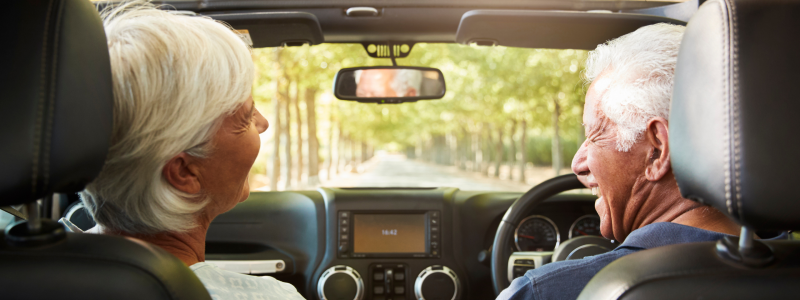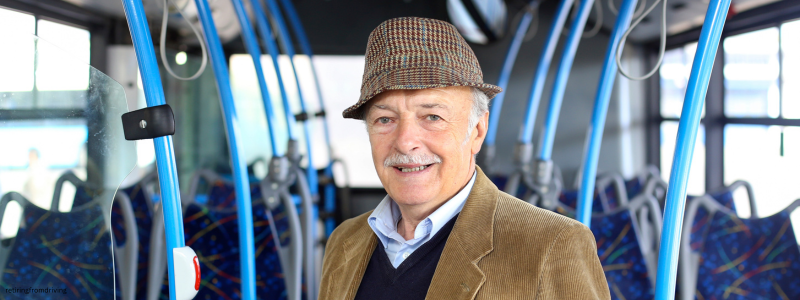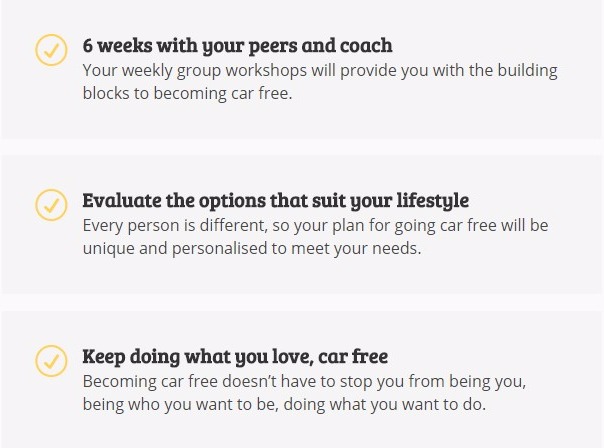The process of retiring from driving can be a very challenging time. While we often focus on getting back on the road after a medical condition, what happens when it’s time to retire from driving?

Retirement from driving is an inevitable part of aging for many people. However, this transition often brings emotional and practical challenges that can be difficult to navigate. As an occupational therapy driving assessor, I see firsthand the complexity of this life change, which not only affects an individual’s mobility but also their sense of independence and quality of life.
For many, driving isn’t just a way to get from one place to another—it’s a symbol of freedom, autonomy, and connection to the community. When it’s no longer safe to drive due to age-related conditions, health concerns, or cognitive changes, the impact can be profound. The loss of the ability to drive often leads to feelings of frustration, loss of control, and even isolation, particularly for those who live in areas with limited access to public transport.
When it becomes clear that a person’s ability to drive has been compromised, part of the challenge is helping them come to terms with this reality. This is often the most difficult part of the process for individuals and their families. The next hurdle is finding alternative transportation options.

It’s important to highlight that the shift away from driving doesn’t have to mean a loss of independence—it just requires a new approach. There is a project called CarFreeMe run from the University of Queensland and it is designed to support people find practical solutions to transport needs as well as manage the psychological adjustment. We have also developed some resources to help work through finding and setting up alternate transport options.
Encouragingly, many seniors find that they can remain active and involved in their communities, even without a car. By focusing on the positives of alternative transportation options, and with the right support, retried divers can be empowered to continue to live fulfilling, connected, and independent lives.
If you would like a workshop on how to prepare for a senior driving assessment and how to plan for retiring from driving check out our workshop here.
Earlier in the year, Car Free Me was featured on Channel 9 News. This blog is shared from Car Free Me’s website – for information click here.
The reporters talked to the team about how to prepare for a car free life. Driving cessation is a big step for most people. But it doesn’t mean that it takes away your freedom and independence. In this two minute segment, Channel 9 introduces the Car Free Me program and how it can help senior drivers in Australia.
Watch the video: Older drivers in Queensland preparing for a car-free
What is Car Free Me?
Car Free Me is for people who are still driving and are considering stopping, and for those who have already stopped driving. It is an interactive and supportive program that runs for 6 weeks. Every week, a group of people gets together with their Car Free Me accredited coach. During each workshop we will give you with the building blocks to becoming car free.
“The important thing is that people take that time to plan for it, to think about stopping driving”, said Dr Theresa Scott, academic at The University of Queensland and member of the Car Free Me research team.
“We are here to support you in your decision and preparation for a car free life. We help you evaluate the options that suit your lifestyle so you can continue to do what you love, without needing a car.”
The participants so far have been very pleased with the program. A Brisbane workshop participant wrote: “I have learned about finding alternative means of transport, planning with more wisdom, the search for best retirement options. The information supplied, support and encouragement, professionalism of the program have all been very useful”.
Recommended reading: How does Car Free Me work?
When do I know I need to stop driving?
Did you know that elderly drivers are the safest drivers? Age is not a factor determining whether or not one should stop driving. However when you start facing new health challenges (like mobility issues and vision impairment), this is when you need to start thinking about alternatives.
At 79, Ross McKinnon still drives everyday and has a clean bill of health. But he told Channel 9 that “it’s important to recognise that everybody will have to make that change.” Safe mobility is essential to healthy ageing.
“Don’t leave it to the last minute to start preparing for your car free life.”
Car Free Me in regional areas of Australia
Everyone should be able to have access to the help they need. Thanks to telehealth trials, the Car Free Me program will be trialled outside of urban, metropolitan areas.
What is telehealth? The Department of Health defines it as “the use of telecommunication technology for the purpose of providing health education over a distance”. That is, you will be able to chat and see your Car Free Me coach using video-conferencing. Easy and effective.
Can I help you?
Please contact me at Driving Well Occupational Therapy if you have concerns about an elderly client’s / patient’s / loved one’s driving.
#olderdrivers #occupationaltherapy #practicaldrivingassessment #drivingcessation
I recently sat down with my Mum (Barbara) the other day, and had a chat about her experiences in supporting her mother (my dearly missed, late Nanny) in retiring from driving.
Jenny:T
Thanks for sharing your insights Mum. What initially concerned you about Nanny’s driving?
Barbara:
She had been using a wheelie walker because of her bad hip and difficulty getting out of the car – I was concerned about her reflexes to brake quickly. She always passed the eye test – but there didn’t seem to be any other regulations at the time. I wasn’t aware of any assessment programs at the time.
Jenny:
How did you feel about this challenge
Barbara:
For me – it was hard, but it was the only way. She was fiercely independent and was always the one helping others, not the one being taken care of.
Jenny:
How did you approach the conversation with her – that it might be time for her to give up driving?
Barbara:
I told her, you’ve had a perfect driving record – “you’ve only ever had one accident 50 years ago which wasn’t your fault and you don’t want to be the old lady on the news who has crashed into a childcare centre.” At that time a number of elderly drivers were involved in some serious accidents as reported in the media. Mum understood the implications.
Jenny:
What strategies did you use to encourage her to stop driving?
Barbara:
Various family members would borrow her car for a few weeks at a time, to get used to not having a car around.
Jenny:
Did you do anything else to support her transition to non-driving?
Barbara:
I would take her shopping, then we had a family conference to try to organise rotations of transport assistance. One advantage for family members driving her places and taking her shopping was the social aspect, having coffees or lunch and chats, just getting out and seeing the world. She also had access to transport assistance through DVA. She was concerned about the costs of taxis, but I pointed out if she sold the car she would have heaps of money for taxis.
Jenny:
And what was the outcome?
Barbara:
She said she had liked having the car there “just in case” – she actually stopped driving about a year prior to selling the car. It took time, but she got used to not having the car around. In the end she was convinced, and her grandson (a mechanic) did up the car and sold it for her.
Can I help you?
Please contact me at Driving Well Occupational Therapy if you have concerns about a client’s / patient’s / loved one’s driving.
#practicaldrivingassessment #driving #occupationaltherapy #drivingcessation #olderdrivers #disability #olderdriver
"*" indicates required fields
- Resources
- Insights
- Forms
- Driver Focus App
Driving Well Occupational Therapy is a busy practice that provides OT driving assessment and vehicle modification services for people with medical conditions and injuries in Brisbane, Ipswich and northern Gold Coast. We service clients who are self-funding, NDIS and other compensable (WorkCover, NIISQ, TAC, iCare).
On behalf of the team at Driving Well Occupational Therapy and in the spirit of reconciliation, I acknowledge the Traditional Custodians of Turrbul and Yuggera country, where our team live and serve the majority of our clients, as well as to all Traditional Custodians of country throughout Australia and their connections to the land, sea and community. I pay my respects to Elders past and present, and extend that respect to all First Nations people today.
On behalf of the team at Driving Well Occupational Therapy and in the spirit of reconciliation, I acknowledge the Traditional Custodians of Turrbul and Yuggera country, where our team live and serve the majority of our clients, as well as to all Traditional Custodians of country throughout Australia and their connections to the land, sea and community. I pay my respects to Elders past and present, and extend that respect to all First Nations people today.

